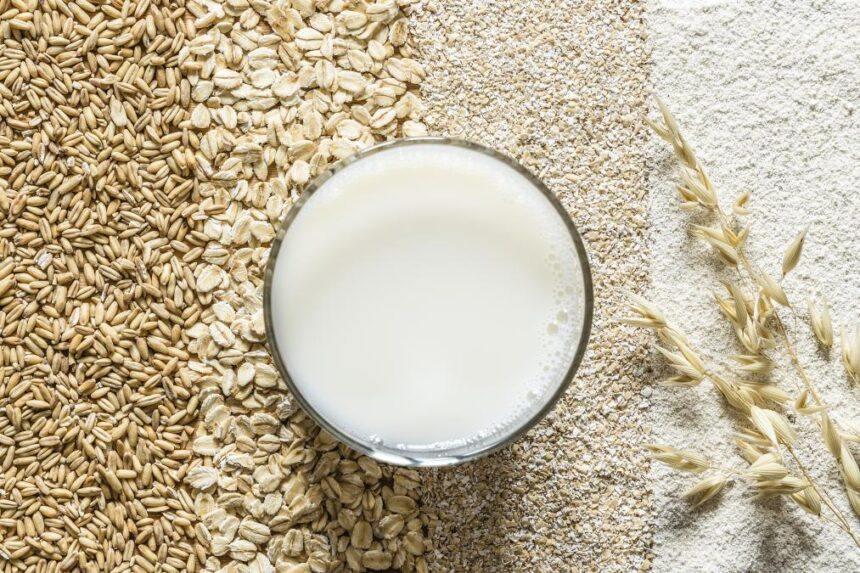In recent years, the market for plant-based beverages has witnessed an unprecedented surge in demand and supply. What was once a niche product found only in health food stores has now become a ubiquitous presence in supermarkets, cafes, and restaurants. This exponential growth is not solely attributed to individuals with milk protein allergies or lactose intolerance; it has evolved into a distinct alternative for those seeking to replace animal-based proteins with plant-derived options.
Under the umbrella term “plant-based beverages,” a diverse range of products is crafted from extracts of various plants such as nuts (walnuts, almonds, hazelnuts), legumes (soy), grains (rice, quinoa), and even seeds (sesame, hemp, and millet).
Distinguishing Between Cow’s Milk and Plant-Based Beverages
It’s crucial to dispel a common misconception that often leads to confusion: Are plant-based beverages the same as animal-origin milk? The answer is a resounding NO, and here’s why:
Legislation defines milk as “the normal mammary secretion of milk-producing animals obtained during one or more milkings.” Since we cannot milk soybeans, quinoa grains, or other plant-based sources mentioned earlier, we cannot categorize them as milk but rather as beverages. Hence, the term “plant milk” is inaccurate, and these beverages cannot be considered direct substitutes for milk; they are incomparable food items.
Having clarified this distinction, let’s delve into a nutritional comparison between cow’s milk and plant-based beverages for a clearer understanding.
Nutritional Comparison: Cow’s Milk vs. Plant-Based Beverages
- Caloric Content: Cow’s milk contains more calories, a significant factor contributing to the increased consumption of plant-based beverages and the reduced intake of cow’s milk. However, it’s crucial to emphasize that the nutritional composition and ingredients are more important than the product’s calorie count. Opting for a low-calorie almond beverage with added sugars provides little nutritional value.
- Carbohydrates: The primary carbohydrate in milk is lactose (5.4g of sugar per 100ml of milk). Plant-based beverages generally contain less sugar (excluding oat and rice beverages), as they lack lactose, which is exclusive to milk.
- Protein: Plant-based beverages typically contain lower protein levels, except for soy milk, which closely mirrors the protein content of cow’s milk.
- Fats: The higher fat content in cow’s milk has contributed to its declining popularity. However, it’s essential to note that milk fat contains essential fat-soluble vitamins (A, D, E) crucial for the body. While some plant-based beverages are enriched with these vitamins, the amounts are often minimal. Whole milk, in particular, offers satiety that other beverages lack.
- Micronutrients: Two notable differences are calcium and vitamin D content. Studies suggest that the calcium in whole milk is more bioavailable than the added calcium in plant-based beverages. Additionally, plant-based beverages contain vitamin D2 (plant-derived), whereas animal-origin milk naturally contains vitamin D3, synthesized by the body through sunlight exposure.
It’s important to clarify that this article doesn’t advocate for either option but aims to explain their nutritional differences.
Factors Contributing to the Rise in Plant-Based Beverage Consumption
Three key factors have driven the increased consumption of plant-based beverages:
- Allergies or Food Intolerance: Individuals with allergies to animal proteins or lactose intolerance cannot consume conventional milk. Even with lactose-free milk options available, many prefer the diverse range of plant-based beverages.
- Improved Digestibility: The absence of casein (milk protein) makes plant-based beverages lighter and easier to digest for some individuals.
- Shift Towards Reduced Animal Protein Consumption: A growing number of people are actively reducing their intake of animal protein, leading to a decrease in milk consumption.
Types of Plant-Based Beverages in the Market
While there is a wide variety of plant-based beverages available, the following are among the most well-known and commercially accessible:
- Soy Milk
- Almond Milk
- Oat Milk
- Rice Milk
- Coconut Milk (often combined with rice)
Despite the extensive options, it’s crucial to address the question:
How to Choose a High-Quality Plant-Based Beverage?
Consider the following criteria when making a selection:
- No Added Sugar: Opt for beverages without added sugars. Check the ingredient list for terms like “sugar,” “syrup,” “fructose,” “sucrose,” “dextrose,” and avoid those that contain added sugars.
- Enriched: Prefer beverages enriched with essential nutrients like calcium, vitamin D, and B12.
- Ingredient Analysis: Read the ingredients carefully and note the percentage of the main plant source (soy, oats, etc.). Choose options with fewer ingredients and a higher percentage of the primary product.
In conclusion, the world of plant-based beverages offers a myriad of choices, each with its unique nutritional profile. Understanding the differences and considering individual dietary needs can guide you in selecting a plant-based beverage that aligns with your preferences and nutritional requirements.













